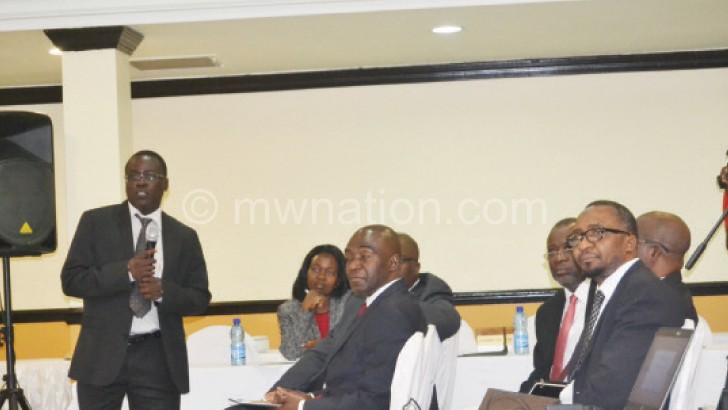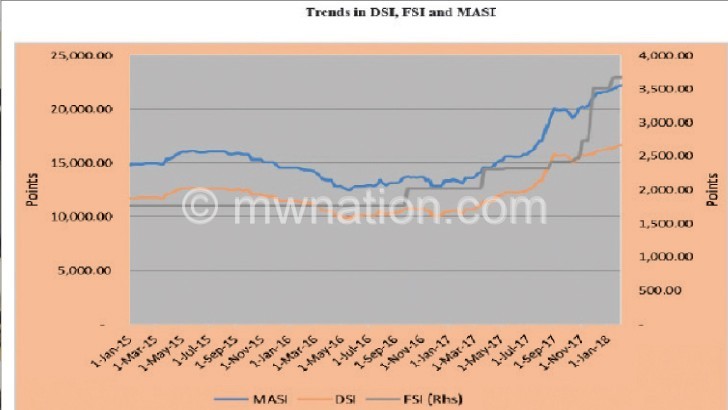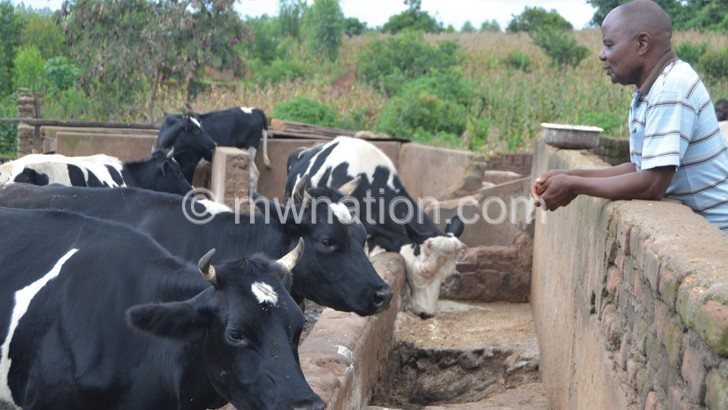The Malawi Confederation of Chambers of Commerce and Industry (MCCCI) has asked government to work on improving the business environment in the 2018/19 National Budget in the wake of dwindling investment projections.
In his presentation at the 2018/19 pre-budget meeting in Blantyre on Tuesday, MCCCI private-public dialogue manager Hope Chavula said projections for the 2018 indicate that Malawi’s economic forecasts for expenditure as a percentage of gross domestic product (GDP) is not encouraging.
Chavula said with a gross capital investment at 3.1 percent and 1.6 percent, investment is not forthcoming.

in Blantyre on Wednesday
“Forecast shows that investment is not forthcoming. These are key statistics we must take into account which this budget must do to reverse the thinking of the private sector,” he said.
Chavula said that as a way of making investments into the country more attractive, there is need to consider further investment allowance on newly built warehouses and other storage structures with capital investments of not less than K200 million.
In the past two years, Malawi has been on the overdrive to attract foreign direct investment (FDI) largely through Malawi Investment Forum (MIF) organised by the Malawi Investment and Trade Centre (Mitc).
Through the Mitc, Malawi has also established a one-stop service centre where all crucial institutions in the investment registration process are operating under one roof.
Ironically, Mitc is failing to sell most of its projects listed in the 2014 and 2016 investment compendium with only about 15 projects out of a total of 193 projects being fully taken up so far ahead of the June investment forum.
According to the 2017 Malawi Government Economic Report, Malawi remains one of the countries in Africa with the lowest levels of foreign investments.
“This can be explained by several challenges the country is facing which can be discouraging foreign investors notably, high transportation costs, unreliable supply of water and electricity, high import duties, high corruption and unpredictable factor and product prices. These partly explain why Malawi is not seen as a relatively attractive destination for investing”.
According to Mitc figures, between 2011 and mid 2016, Malawi attracted foreign and domestic investments worth $6.5 billion (about K4.7 trillion).
A strategic plan by Mitc project the country’s investments to rise to $15 billion and increased export earnings to $4.9 billion by 2019 as well as the creation of 650 000 direct and indirect jobs.
Under the tax investments provided in the Taxation Act, investment allowance is given to a taxpayer who is also a manufacturer equal to 100 percent of the cost of new and unused (industrial buildings) plant or machinery and equal to 40 percent of the cost of used industrial buildings and plant machinery.
The post ‘Gloomy outlook for FDI’ appeared first on The Nation Online.












